Do you ever wonder why we make moral claims and how we justify them? Metaethics is a philosophical inquiry that explores the nature of moral claims and concepts. Let’s explore what is metaethics, and why it is important in understanding moral philosophy.
What is metaethics?
Metaethics definition: Metaethics is a branch of moral philosophy that focuses on the nature of moral language, moral knowledge, and moral truth. It is concerned with understanding the meaning and justification of moral claims, and the ways in which moral disagreements can be resolved.
It is a philosophical inquiry into the nature of moral claims and concepts. It is not concerned with specific moral issues, but rather with the meaning and justification of moral language. Metaethics aims to understand the nature of moral truth, moral knowledge, and moral disagreement.
Now that we understand what is metaethics, let us discover some of the key concepts in metaethics philosophy.
Related: Morality Of Wisdom: There Is No Such Thing As Good Or Bad

Key concepts in metaethics
To understand metaethics meaning, we have to understand that metaethics is often divided into three main areas of inquiry: moral realism, moral anti-realism, and moral relativism. These areas of inquiry explore different questions related to the nature of moral claims and concepts.
1. Moral realism
Moral realism is the view that moral claims are objectively true or false, independent of our beliefs, traits, emotions, or cultural norms. According to moral realism, there are moral facts that exist independently of human beings.
2. Moral anti-realism
Moral anti-realism is the view that moral claims are not objectively true or false, but rather depend on our beliefs, emotions, or cultural norms. According to moral anti-realism, there are no moral facts that exist independently of human beings.
3. Moral relativism
Moral relativism is the view that moral claims are true or false relative to a particular culture, society, or individual. According to moral relativism, there are no objective moral truths that exist independently of human beings.
Now that we know what is metaethics and some key concepts of metaethics definition, let us explore some examples of metaethics philosophy.
Metaethics examples
Here are some examples of metaethical questions and issues that arise in moral philosophy:
1. Examples of moral realism
Are moral claims objectively true or false, independent of human beliefs, emotions, or cultural norms? For example, is it objectively true that murder is wrong, or is this claim a matter of personal opinion or cultural convention?
2. Examples of moral anti-realism
Are moral claims dependent on human beliefs, emotions, or cultural norms? For example, do moral claims only express the attitudes or preferences of the speaker, or are they based on objective facts about the world? This is one of the most apt metaethics examples. .
3. Examples of moral relativism
Are moral claims true or false relative to a particular culture, society, or individual? For example, is it possible for an action to be morally right in one culture or society, but morally wrong in another?
These are just a few examples of the kinds of questions and issues that arise in metaethics. By exploring these questions, we can gain a deeper understanding of the nature of moral claims and concepts, and how we can make ethical decisions in our personal and professional lives.
Related: Native American Code of Ethics: 20 Rules For Mankind To Live By
Why is metaethics important?
Understanding what is metaethics is not enough, we also need to explore the importance of metaethics meaning.
Metaethics is important because it provides a framework for understanding moral language and concepts. It helps us to understand the nature of moral claims, the justification for moral beliefs, and the ways in which moral disagreements can be resolved.
Metaethics also has practical implications for moral decision-making. By understanding the nature of moral claims and concepts, we can make more informed and ethical decisions in our personal and professional lives.
Applying metaethics in practice
Metaethics can be applied in a variety of fields, including law, medicine, and business. In each of these fields, metaethics can help to inform ethical decision-making and promote more just and ethical practices.
1. Law
Metaethics can help to understand the nature of legal ethics and the justification for legal decisions. For example, a metaethical understanding of moral realism can inform the development of legal systems that aim to promote objective moral truths and principles.
A metaethical understanding of moral anti-realism, on the other hand, can inform the development of legal systems that aim to promote individual or cultural values and norms.
2. Medicine
Metaethics can inform ethical decision-making in clinical practice and research. For example, a metaethical understanding of moral relativism can help to promote cultural sensitivity and respect for diverse values and beliefs in medical practice.
A metaethical understanding of moral realism, on the other hand, can help to promote the use of evidence-based practices and objective moral principles in medical research.
3. Business
Metaethics can inform ethical decision-making in corporate social responsibility and sustainability practices. For example, a metaethical understanding of moral anti-realism can inform the development of corporate social responsibility practices that prioritize individual or cultural values and norms.
A metaethical understanding of moral realism, on the other hand, can inform the development of sustainability practices that prioritize objective moral principles such as environmental protection and social justice.
In each of these fields, a metaethical understanding of the nature of moral claims and concepts can inform ethical decision-making and promote more just and ethical practices. By applying the insights of metaethics to practical situations, we can work towards creating a more just and ethical society.
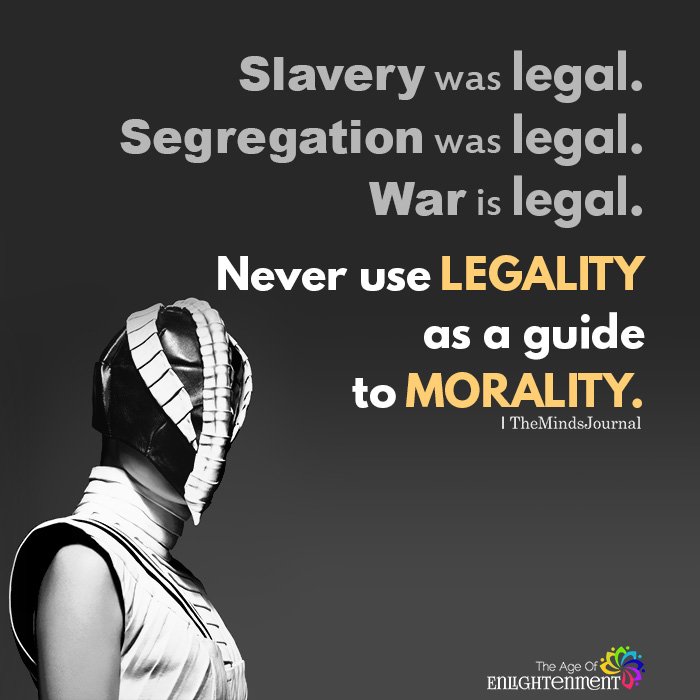
Takeaway
Once you know what is metaethics, you realize that it is a valuable branch of moral philosophy that provides a framework for understanding the nature of moral claims and concepts.
By exploring the different areas of inquiry in metaethics, we can gain a deeper understanding of the nature of moral truth, moral knowledge, and moral disagreement.
This understanding can inform ethical decision-making in a variety of fields, and help to create a more just and ethical society.
Related: 5 Inspiring Moral Stories For Adults
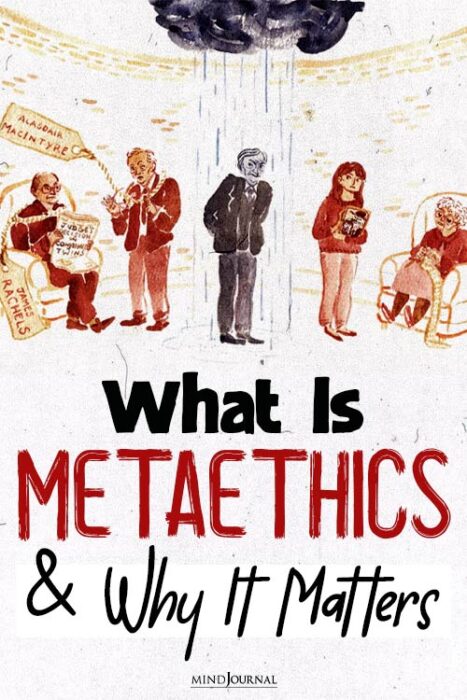
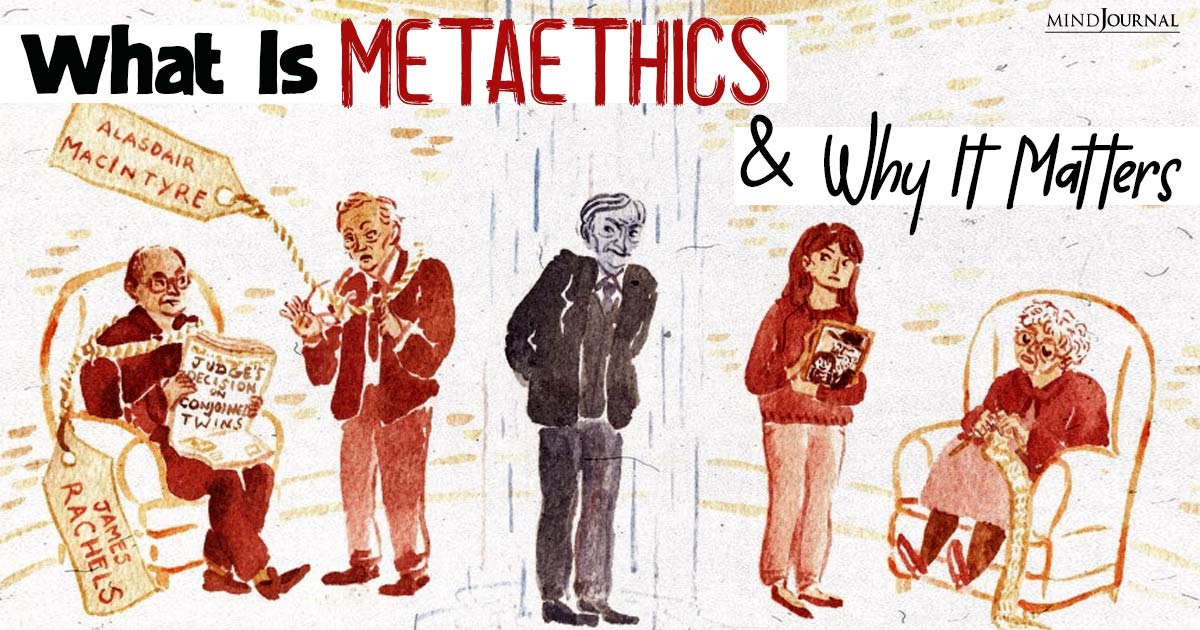



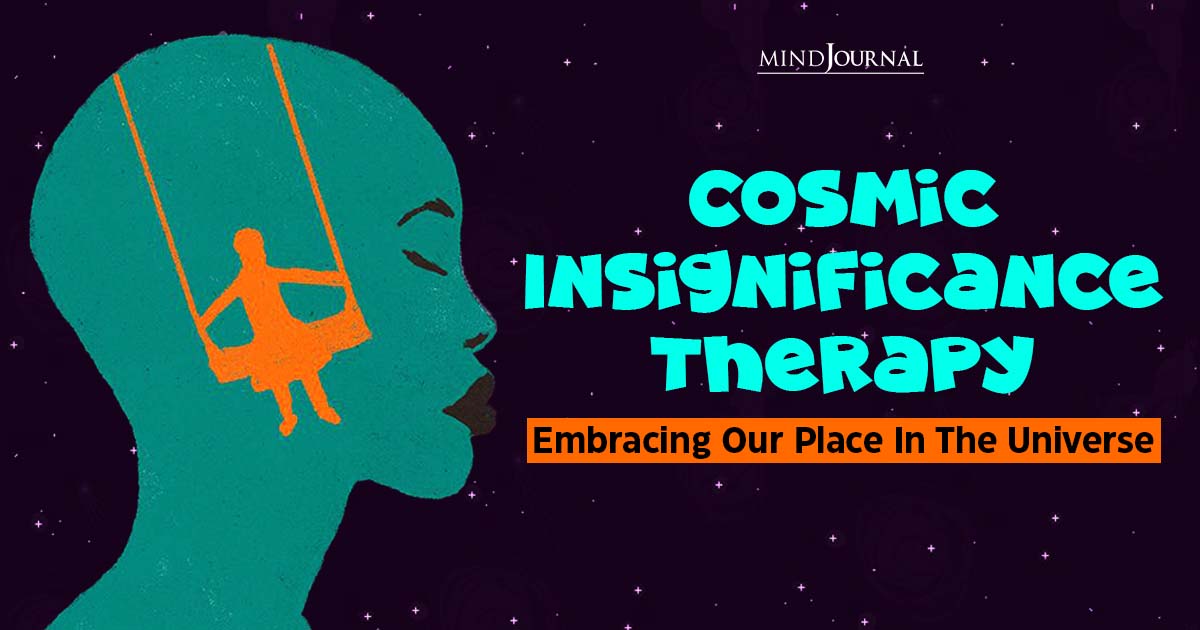

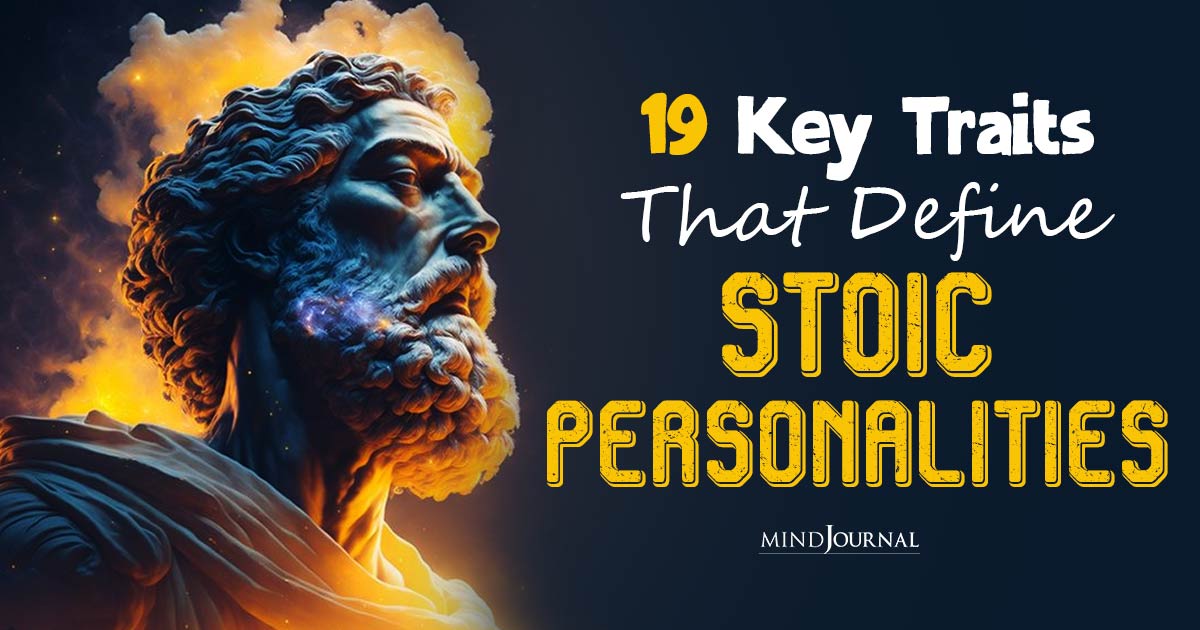

Leave a Reply
You must be logged in to post a comment.